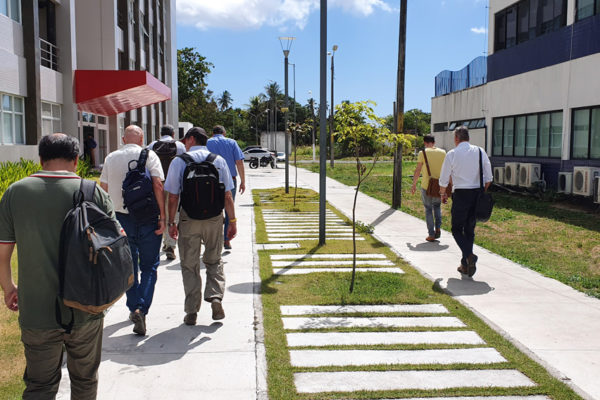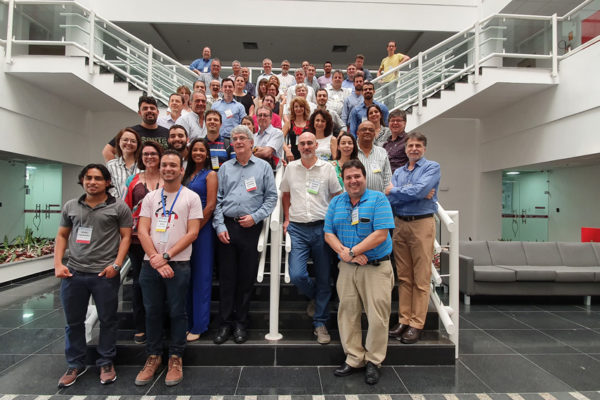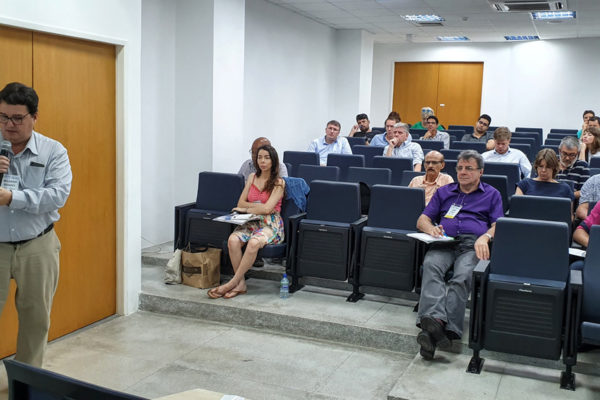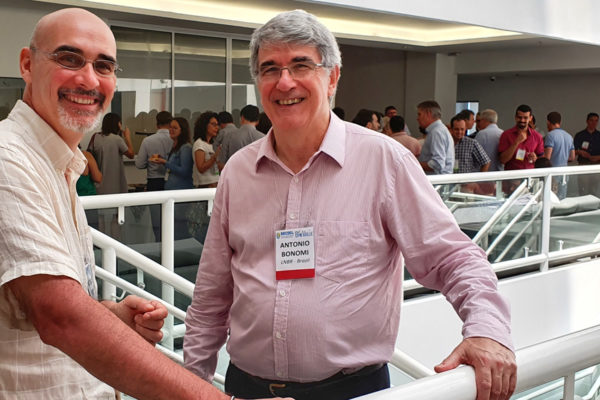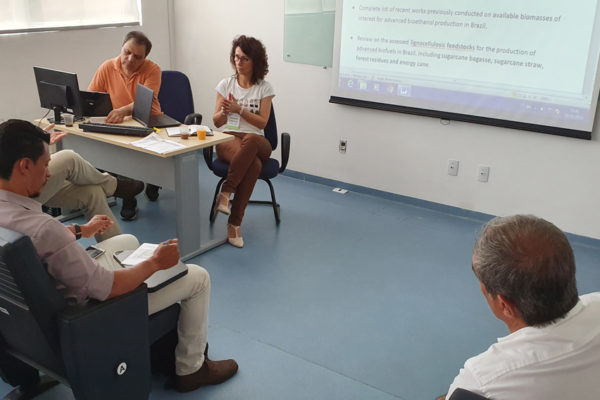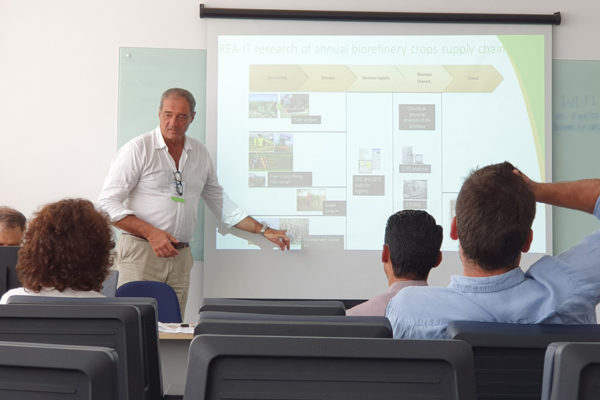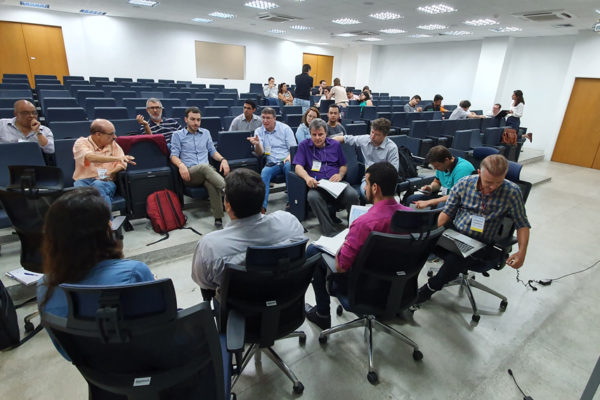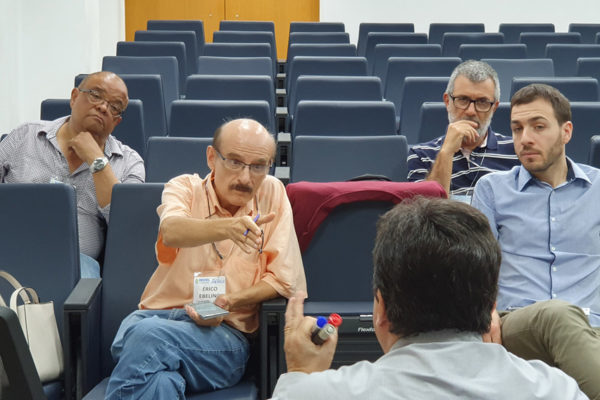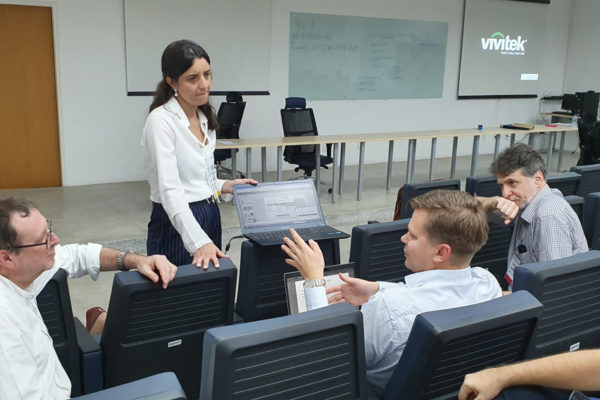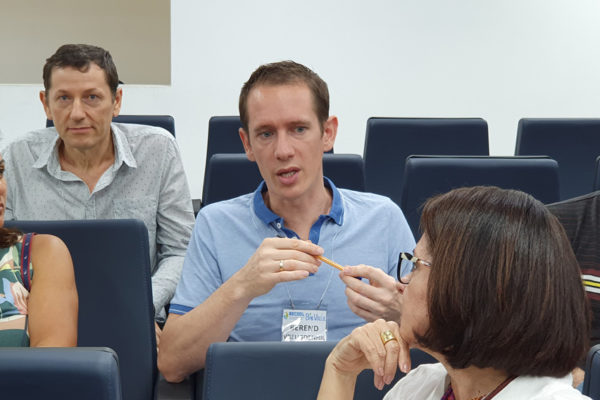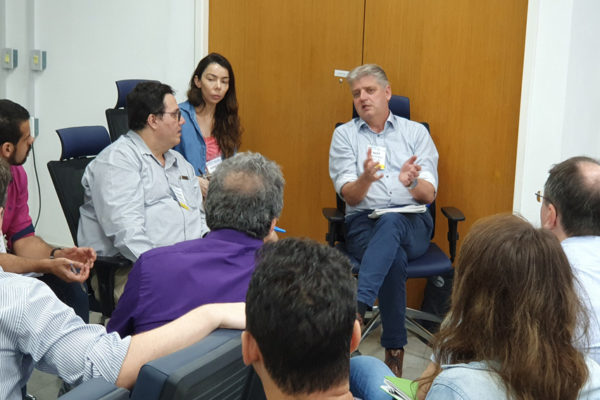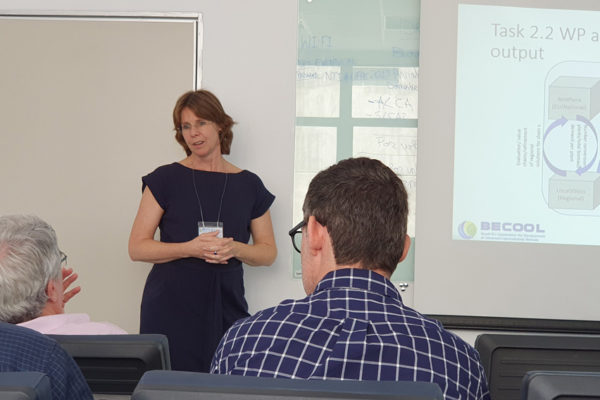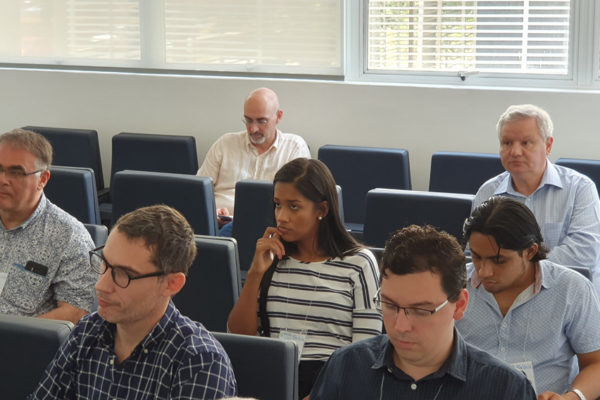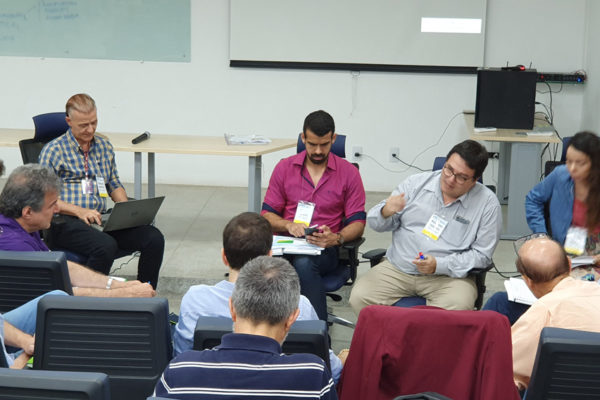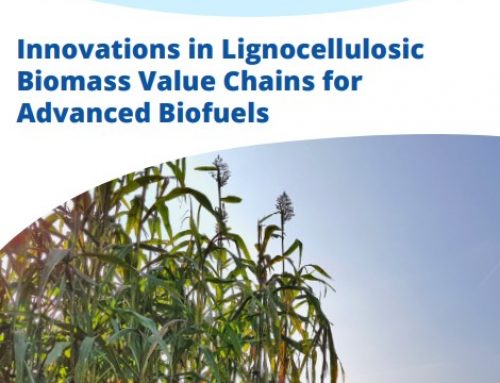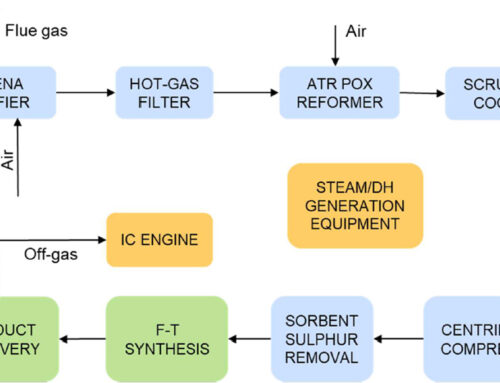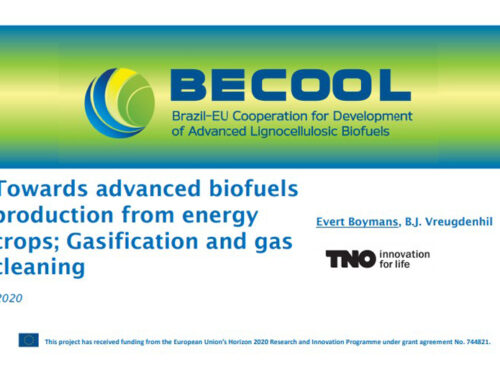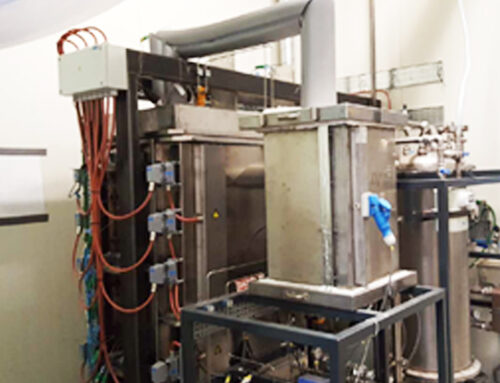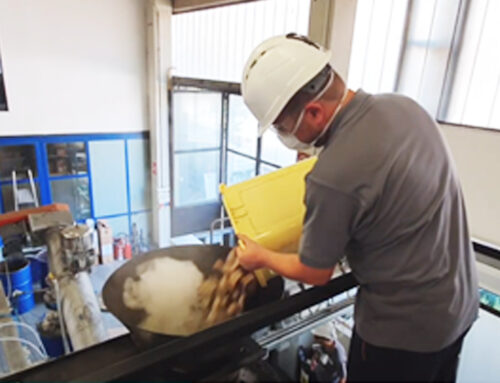International cooperation for the development of advanced lignocellulosic biofuels is one of the main features of BECOOL. On the second day of the BECOOL and BIOVALUE project meeting in Recife, partners from Europe and Brazil engaged into parallel panel discussions about how to exploit the synergies and the complementarities between the two projects.
Altogether, these people can really deploy deep skills in a wide spectrum of disciplines ranging from agriculture, logistics, chemical and mechanical engineering, modelling, economics, and environmental assessment. Putting together this large body of expertise is a way to drive innovation and indeed many ideas and opportunities emerged from the spontaneous talks today. Some examples:
– Technologies developed by SME manufactures of agricultural machineries in Europe could help to increase the efficiency of harvesting sugar cane straw, an abundant but still challenging feedstock for second generation biofuels in Brazil;
– The experiences in the cultivation of sunnhemp (Crotalaria juncea) by LNBR in Brazil (somethings we were not aware about until today) can benefit to the development of sunnhemp as a summer cover crop in rotation with cereals in Greece, Italy and Spain, especially with regard to the identification of possible new cultivars and cropping schemes.
– A number of ongoing projects and research initiatives both in the EU and in Brazil were named, that can feed their results to BECOOL and BIOVALUE and provide complementarity.
– A wide range of in-depth tests on feedstock characterization, gasification, pyrolysis and gas cleaning, for example on sugarcane bagasse, can be implemented by combining and aligning the analytical capabilities that are available at European and Brazilian laboratories
– Significant improvements could be achieved in the modelling of conversion processes and in the development of cost estimations by sharing and harmonizing the data and the results of the different models available in the EU and in Brazil.
See some pictures from yesterday’s meeting here


